“Come out wherever you are.”
Small Town Pride follows the leadup to Pride celebrations in three communities: Taber, Alberta, population 9,000; Norman Wells, Northwest Territories, population 800; and Annapolis Royal, Nova Scotia, population 500.
It’s a documentary that will melt even the most cynical of coal hearts. Like mine.
Even though I was born and raised in a small town that was pretty rife with homophobia, I spent over a decade living in cities, and often feel a bit jaded about things like painting rainbow crosswalks and raising Pride flags at town hall.
Not so watching activists in Taber struggle to get their town council to support their Pride event, or seeing Annapolis Royal’s mayor wholeheartedly support painting a Pride crosswalk in a prominent foot traffic area by its farmers market.
The documentary shines a light on everyone — from teens organizing in their high schools, to older folks who joined the (homophobic!) military in their 20s as a way to strike out in the world. It features a trans man who leans on religion in hard times but doesn’t feel comfortable going to his church, and a trans woman who grew up Mormon and now flies as many Pride flags around her house and car as she can, hoping her visibility will encourage others to feel safe.
In other words, it’s a film that meets people where they’re at and tells their stories in all their complexity.
I spoke with co-director and co-writer Chelle Turingan about the process of making Small Town Pride and what they learned about how Pride events in small towns differ from those in big cities. Our conversation has been condensed and edited for clarity.
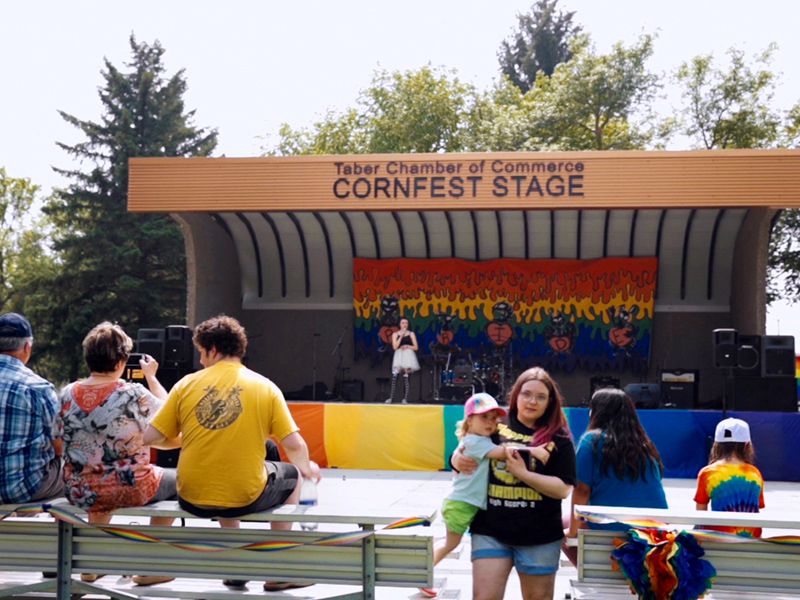
The Tyee: There were so many moments in Small Town Pride that I found surprisingly emotional. I grew up in a small town and live in one again, and I’ve been curious for a long time about the narrative that queer people leave their small towns to head to the city for a bit more freedom to be themselves. The flip side of that narrative is: what happens when people choose to stay — or return — instead? So I know why I was really excited to watch Small Town Pride the moment I heard about it. Why were you drawn to writing and directing it?
Chelle Turingan: I think people kind of look at me and are like, “You grew up in Toronto... why would you make a doc about small towns?” But my partner actually grew up in a small town called Smith Falls, Ontario, which has a population of about 8,000 or 9,000 people, so about the same size as Taber. In 2018, Smith Falls celebrated its first Pride. I went with my partner and her mom, and it was very cute. There were about 50 or 100 people walking down their main street, and that was their Pride.
I looked over at my girlfriend, and she was almost in tears. I was like, “Are you OK?” She just said, “I never thought I would ever see this happen in my small town.” And then it hit me: oh, yeah, obviously, our experiences are different. I think I took the fact that I grew up in Scarborough, with 30-minute access to Toronto, for granted. My older brother is gay. I was very lucky to have access at a very young age. It hadn’t occurred to me until seeing her reaction that that was not the case for everyone.
When I began to circulate the idea and we were doing the initial research, we found that there was an uptick in small-town Prides happening all across the country. And I thought, why don’t we go and see some of these people and see the work that they’re doing? My partner was one of those people who felt like she had to leave. But some people don’t have that privilege, or maybe they don’t want to leave. Or circumstances caused them to come back. But all of us deserve to live in places where we feel safe. I wanted to speak to some of those people who were there organizing in those places.
Why did you decide to focus on Taber, Annapolis Royal and Norman Wells?
We could have gone to 100 places in Canada and still not captured the full experience of queer life in these small towns. My boring, logistical answer when I put on my producer hat is that some of it is just logistics — these small towns are celebrating their Prides at the same time, so you have to pick and choose.
In some places where we did our initial research and pre-interviews, we met incredible people. But after speaking to them for some time, they didn’t feel comfortable appearing on camera, or outing themselves. We didn’t want to put anyone in a position where they felt unsafe.
But basically, in Taber and Annapolis Royal and Norman Wells, we found really interesting people and there are little hooks for each place. Annapolis Royal, for example, is one of the smallest towns in the country. But it’s very unique because of where it’s placed, and the beauty of the location. It gets a lot of tourism. The mayor at the time, Bill MacDonald.... they were very lucky to have somebody in that position in town who was advocating for Pride. He was the one who wanted to install the rainbow crosswalk at the farmers market. He was the one who did a callout to the town to build the Pride committee.
I think it’s fair to say that Taber probably has the most obvious conflict, in that the folks in the Taber Equality Alliance are dealing with not only just the people in their small town, day to day, giving them a rough time, but they also have a city council that is barring them from raising the Pride flag on the city hall flagpole. One of the documentary participants says that Taber is right in the middle of the Bible Belt. When we went there, every other block had some different denomination of church. So we definitely wanted to speak to those folks and understand their experiences.
And then in Norman Wells, the amazing kids at the Mackenzie Mountain School run their Pride. It’s not like in Toronto or Montreal or Vancouver, where you have these huge committees and year-long planning. It’s a bunch of 16-year-olds and their Gay-Straight Alliance. Their Pride Week is a movie night in Miss Kelly’s class and a parent info night they call their coffee and tea night. They had like a little — I call it a gay prom — but they had a dance. And that’s their Pride. At the time, they were also the most northern Pride event. I think those kids felt very proud of themselves, as they should, because when other schools around their area, further north even than them, found out what they were doing, they were like, “We can do that too.” And now they have their Gay-Straight Alliances, and the kids at Norman Wells were so happy to give up the title of “most northern Pride,” because that meant Pride was spreading.
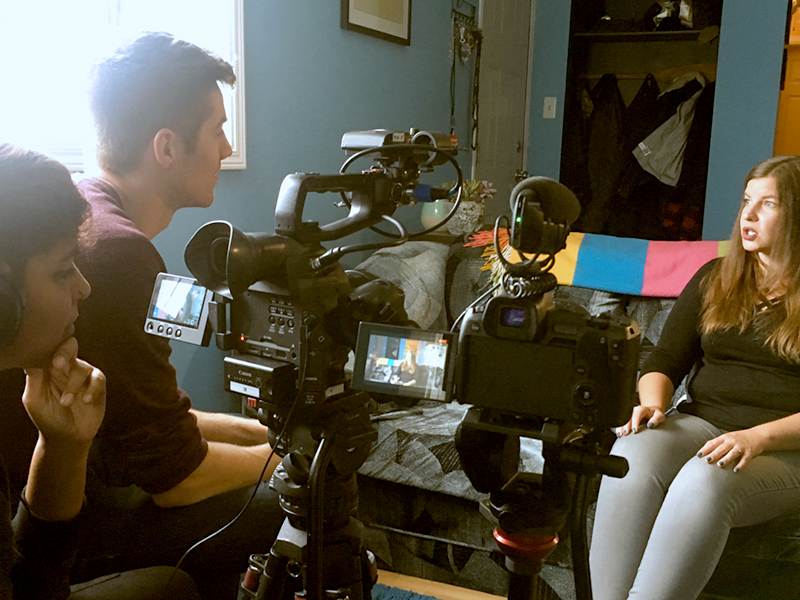
You mentioned what it was like for Annapolis Royal to be a small town with a supportive mayor. I’m wondering if we can talk about what happens when that’s not the case. In Taber, the Pride organizing committee finds it difficult to get city council to approve flying a Pride flag on its flagpole. After the council votes against it, they narrowly pass a second proposal to have the flag fly on the community pole behind town hall. And then the flag is vandalized, and then it’s burned. The documentary features interviews with a lot of different stakeholders about it. Did the answers you got from Mayor Andrew Prokop and city councillors feel satisfactory?
I think the answers we got were the ones I was kind of expecting to get. The interview with the mayor was something that happened when we were in production. We did not initially plan to speak to him. But as we were there and speaking to other people, town hall reached out to us and said, “We’d like you to speak to Andrew.” I don’t think I was shocked at all by what was said, or how it was said.
What I do think is shocking is that once the film was out in the world, and people had a chance to see it, we did see change. The following year — we were in pandemic times at that point — and many of these small places were doing virtual Prides. The mayor made it a point to pop into their Facebook group to say congratulations on their event and to say he hoped it went well. From the sounds of it, at least when we’ve spoken to some of those folks after the film, it sounds like he is actively trying, which was something I was not expecting to hear at all. It was kind of heartwarming to hear that he was making steps and moves in the right direction. Obviously folks in Taber were cautiously optimistic, but that’s a big win for them to see something like that.
That is interesting. Because on camera the mayor talks about going to a golf tournament fundraiser instead of Pride, and he says the LGBTQ2S+ community sees the town negatively and it’s not completely fair because, “We’re not just looking out for the LGBTQ people, we’re looking out for the entire population of this municipality.”
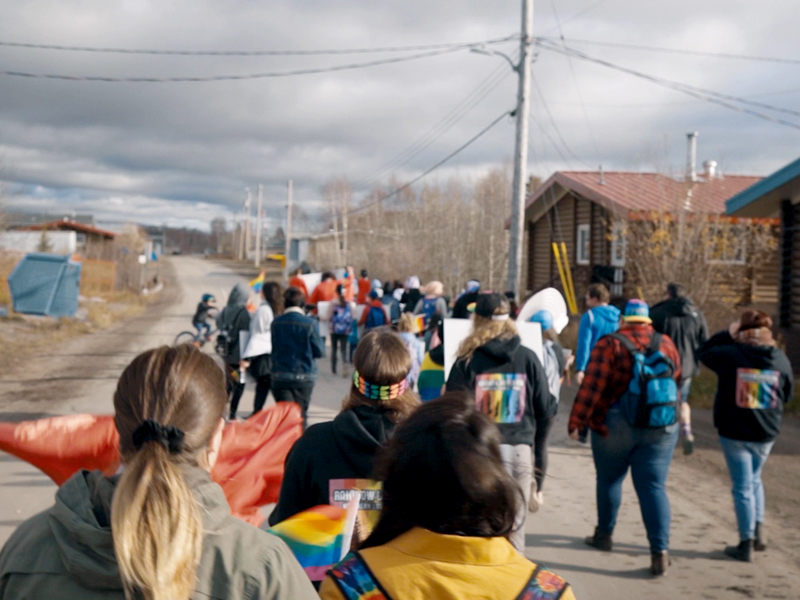
There’s a moment in Norman Wells when Dora Grandjambe, a residential school survivor, is talking about how her classroom provides a safe space for youth to come and talk. There’s another teacher at the school, Sarah Kelly, who started the Gay-Straight Alliance there. Grandjambe says it’s the youth in her community who are really driving change. And I think that’s true — and what it took for the youth to start making these big changes in their community was two adults making a bit of space for them. One of the implicit themes of Small Town Pride is intergenerational organizing. And I wonder if that intergenerational organizing is easier to make happen in a smaller place, because it’s born of necessity.
I love that you noticed that. I don’t think that those connections are necessarily as apparent in bigger places. I think it’s like you said — it’s out of necessity. If you’re the only queer folks in town, then that’s your group, right? Another interesting thing about Annapolis is that it’s very much a retirement kind of town. So there are the young people who go to school there, who tend to leave after they graduate, and then there are all the retirees. There’s a large age gap between, for example, two Pride organizers, Zeynep and Bleu Rae. And I think that’s really beautiful, actually. I wish there were more opportunities for younger queer people to connect with our elders and our seniors because they hold so much history.
I love that you mentioned Dora and Sarah. The existence of their spaces empowers those kids to really live up to their potentials. And it seems to be a common theme. Jayce, in Taber, at one point explains that it’s important for her to have her rainbow flags on her car and on her garage door and everywhere she can, because the young people in town will see that. When you see that an adult can do that, it empowers youth to say, “I can do that, too.” I think that intergenerational work is so important.
'Small Town Pride,' a film by Chelle Turingan and Riley Sparks, has been screening at individual film festivals across Canada. The filmmakers hope it will be available nationally in the near future. Check their website for updates. ![]()
Read more: Municipal Politics, Gender + Sexuality, Film


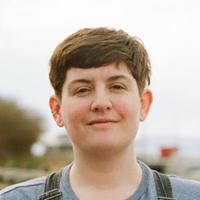
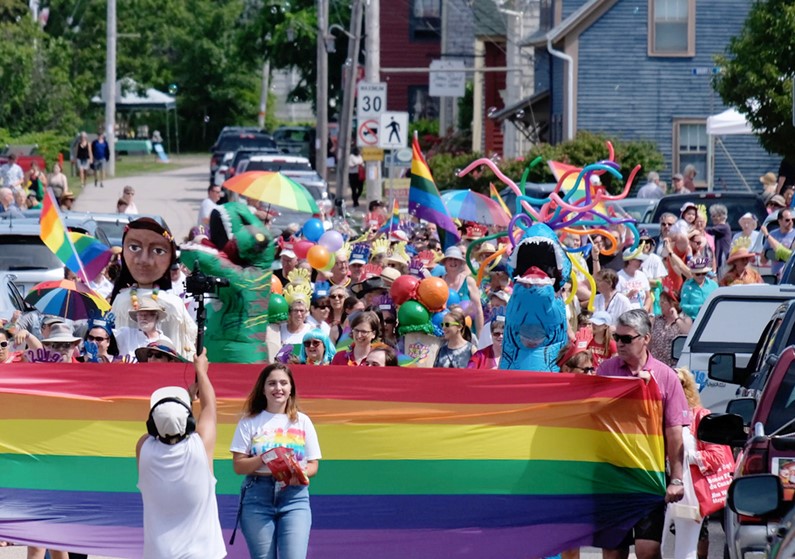












Tyee Commenting Guidelines
Comments that violate guidelines risk being deleted, and violations may result in a temporary or permanent user ban. Maintain the spirit of good conversation to stay in the discussion.
*Please note The Tyee is not a forum for spreading misinformation about COVID-19, denying its existence or minimizing its risk to public health.
Do:
Do not: